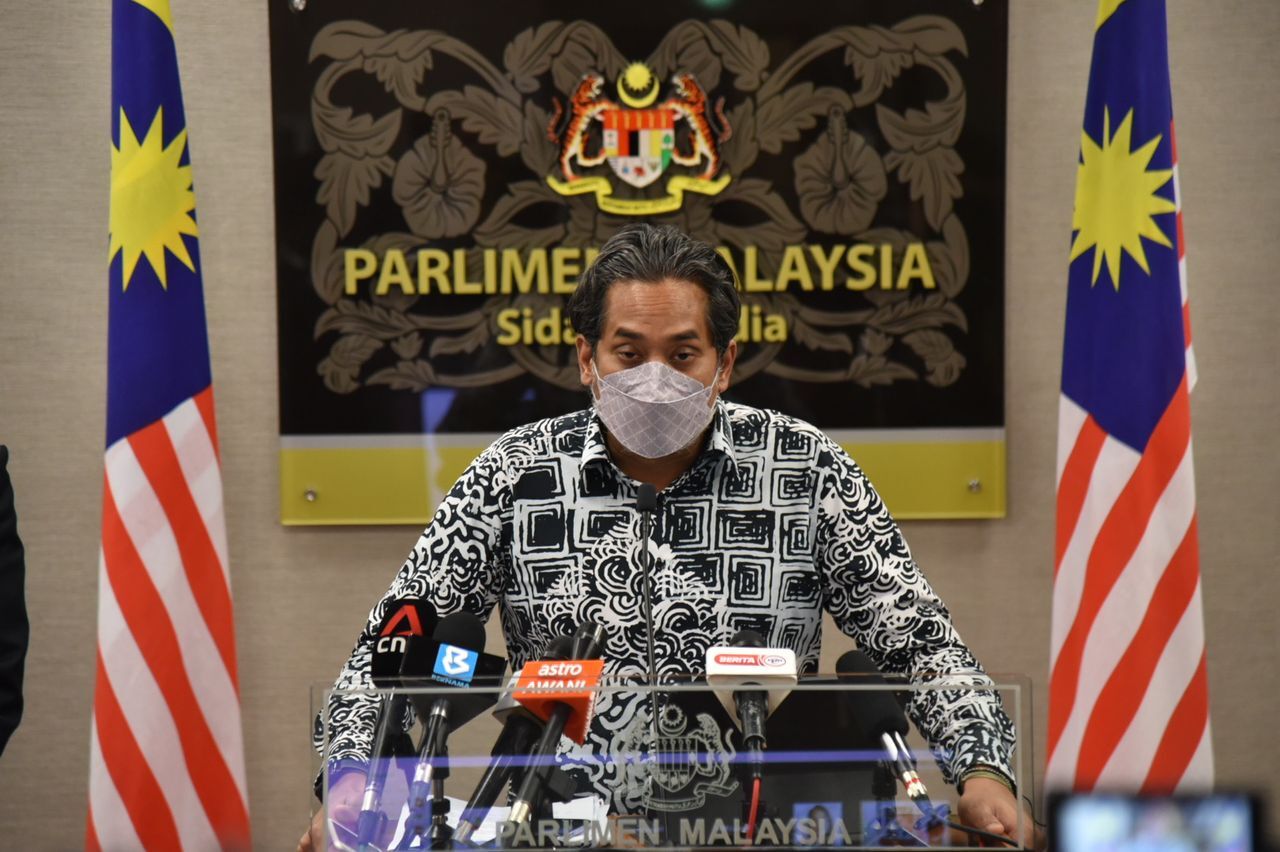KUALA LUMPUR, April 7 – The Ministry of Health (MOH) is planning to introduce a national law on drinking water that sets and enforces safety standards for drinking water in Malaysia.
Health Minister Khairy Jamaluddin said the new federal law will support the ministry’s existing safe drinking water programme, known as the National Drinking Water Quality Surveillance Programme (NDWQSP), and its Water Supply and Environmental Sanitation Unit (BAKAS) that have so far contributed to the near full coverage of clean and safe water supply in the country over the past five decades.
“The MOH is also planning to introduce the Drinking Water Quality Act (DWQA) in the near future, to further fortify our protection against health hazards due to unsafe drinking water,” Khairy said in a pre-recorded speech for the World Health Day 2022 virtual event today.
Khairy said through BAKAS and the NDWQSP, the MOH has managed to raise the quality of health by ensuring that drinking water provided to the public are safe and meets the stipulated standards, which helps to reduce the incidence of water-borne diseases or illnesses associated with poor quality of public water supplies such as cholera, typhoid, diarrhoea, dysentery, and Hepatitis A.
“The surveillance programme alerts public health and water work personnel if the quality of drinking water deteriorates and enables them to undertake preventive or remedial measures before the occurrence of any major outbreak of disease or poisoning,” Khairy said.
The theme of this year’s World Health Day is “Our Planet, Our Health: Clean our Air, Water and Food”.
On food, Khairy said the MOH has also been “working closely” with the food industry to address production of food that are highly processed as well as unhealthy foods and beverages which leads to obesity, increasing cancer and heart diseases, and contributing to global greenhouse gas emissions.
He said stunting and wasting among children aged below five years in Malaysia are alarming, while obesity and other diet-related non-communicable diseases (NCDs) are on the rise.
“A sustainable food system for a healthy diet is crucial in ensuring the well-being of our population. Therefore, the National Nutrition Policy of Malaysia (NNPM) 2.0 was formulated with emphasis on elevating nutritional status, reducing NCDs and strengthening food and nutrition security,” Khairy said.
Khairy noted that Malaysia has also imposed an excise tax on sugar-sweetened beverages (SSB) to increase the price of SSB, which conceptually, should lead to reduced demand and consumption of these beverages and thus, reducing obesity and other diet-related NCDs.
In addition to government efforts, Khairy said it is also imperative that Malaysians voluntarily change their behaviour and increase their awareness on health so that the country can develop into a healthier nation.
“People must not solely depend on the MOH and as such, the community must be empowered as the responsibility of health seeking behaviour is shifted to individuals,” Khairy said.
On clean air, Khairy said while the annual trend of ambient (outdoor) air quality has been steadily improving in Malaysia since 2010, the country still experiences repeated short-term poor air quality due to the haze phenomenon, which is primarily caused by forest fires from both local and transboundary sources.
Indoor air quality has also improved though unclean air due to smoking remains a problem that must be addressed in Malaysia, Khairy said.
“It is for this and many other reasons Malaysia is seeking to push forward a tobacco generational end game.”
Earlier today, the Dewan Rakyat special select committee on health, science and innovation, chaired by Bandar Kuching MP Dr Kelvin Yii Lee Wuen, initiated proceedings to review the government’s proposed Tobacco and Smoking Control Bill before it is tabled in July.
Khairy and Health director-general Dr Noor Hisham Abdullah were summoned to give the committee an initial briefing of the government’s intention for the Bill, a presentation of the draft Bill, the government’s implementation and enforcement plans, and the feasibility of the ‘generation end game’ in the context of Malaysia.







